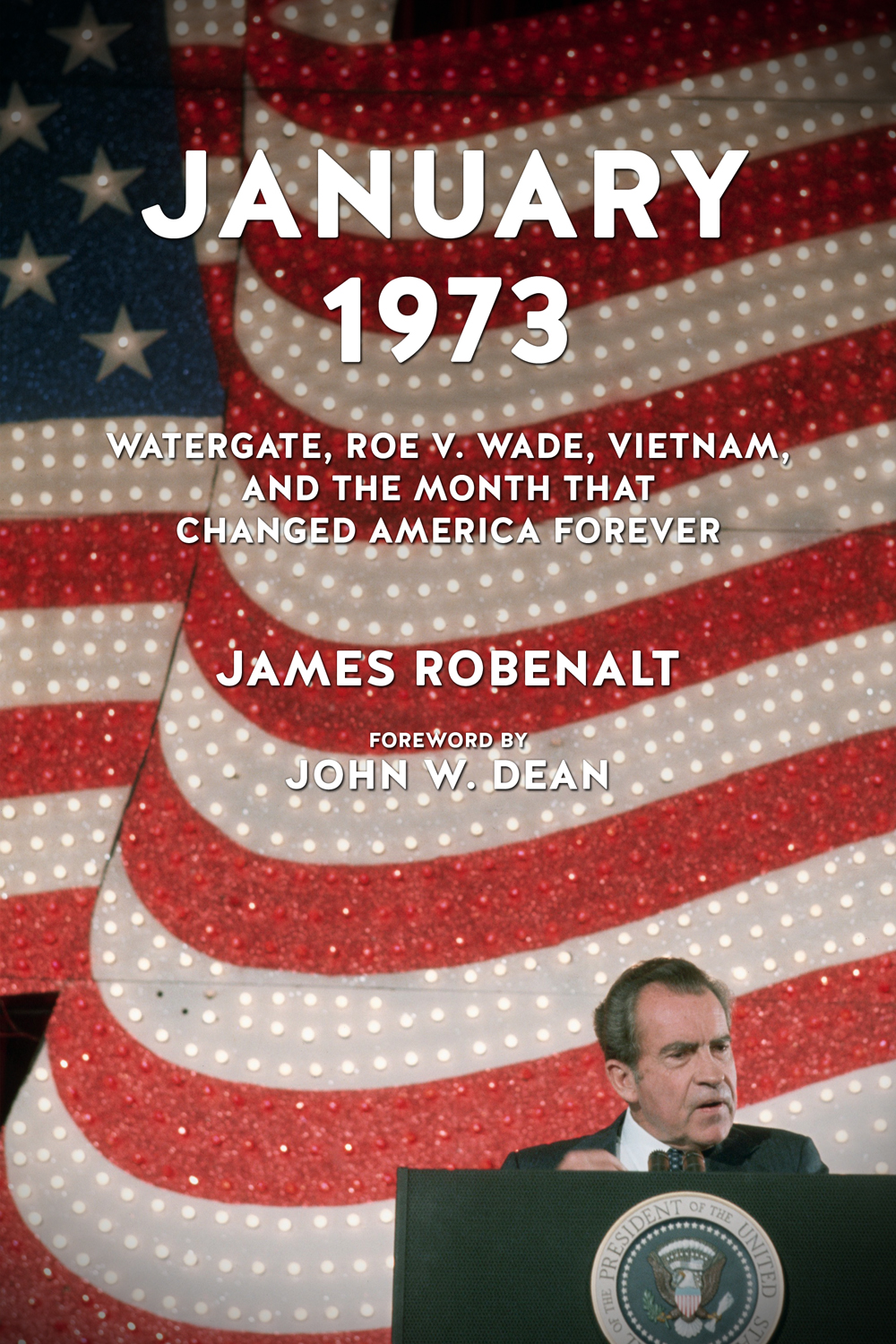Where to begin. The Vietnam War had such a monumental impact on America and its politics it is difficult to summarize.
The Great Society foundered under the financial weight of the war; the Civil Rights movement was severely crippled; Johnson's presidency was wrecked; Nixon's political rebirth came about because of the war; America redefined its role in the world and President Nixon attempted to apply the Nixon Doctrine of "self-reliance" to the domestic sphere, starting what would become known as the "Reagan Revolution"; and Watergate would preclude Nixon from enforcing the agreement Kissinger negotiated. The impact and ramifications are almost endless.
But here is just a sampling, showing the deep interconnections with the other great events of January 1973.
Connections to the other great events of January 1973
1. Impact on Great Society and Civil Rights movement. Vietnam churned up society, activated a younger generation whose members were subject to the draft, and drove a wedge between Dr. Martin Luther King, Jr. and President Johnson at the very time LBJ was overseeing historic change in race relations. In the process, the foot soldiers of the counterrevolution--Nixon's "Silent Majority"--exercised political muscle and instituted changes that would transform the solidly Democratic South to the solidly Republican South of today. Civil Rights stalled, the war on poverty was all but abandoned.
Dr. Martin Luther King in the White House with LBJ in the background.
2. Dr. King spoke at the National Cathedral at the request of Dean Francis Sayre (see the Truman memorial) on Sunday, March 31, 1968. Here in part his comments about the war:
“I am convinced that it is one of the most unjust wars that has ever been fought in the history of the world. Our involvement in the war in Vietnam has torn up the Geneva Accord. It has strengthened the military-industrial complex; it has strengthened the forces of reaction in our nation. It has put us against the self-determination of a vast majority of the Vietnamese people, and put us in the position of protecting a corrupt regime that is stacked against the poor.
It has played havoc with our domestic destinies. This day we are spending five hundred thousand dollars to kill every Vietcong soldier. Every time we kill one we spend about five hundred thousand dollars while we spend only fifty-three dollars a year for every person characterized as poverty-stricken in the so-called poverty program, which is not even a good skirmish against poverty.
Not only that, it has put us in a position of appearing to the world as an arrogant nation. And here we are ten thousand miles away from home fighting for the so-called freedom of the Vietnamese people when we have not even put our own house in order. And we force young black men and young white men to fight and kill in brutal solidarity. Yet when they come back home that can’t hardly live on the same block together.”
Click here for the entire text of the sermon.
3. That same evening, March 31, 1968, Lyndon Johnson went on national television to say he would not run for president in 1968, as he wanted to concentrate all his energies on his peace initiative in Vietnam.
In 1966, it was hard to imagine a popular LBJ not running for and easily winning re-election in 1968. The Vietnam War reversed everything. The war's end would come the same week that LBJ died.
Four days after his sermon in the National Cathedral and LBJ's withdrawal from the race, Dr. King was assassinated in Memphis. The rights movement was severely crippled.
Memphis, Tennessee, April 4, 1968
4. Johnson's withdrawal, the chaos of the times, all contributed to Richard Nixon's ability to rehabilitate himself and run again for the presidency. His victories in 1968 and 1972 both hinged on how to end the war in Vietnam.
Nixon with Johnson after his victory in 1968
5. With the presidency comes the right to nominate Supreme Court justices. Nixon would appoint three justices who would have defining influences on the Supreme Court's decisions on abortion. Chief Justice Burger, Justice Blackmun and Justice Powell each played unique and decisive roles in the outcomes in Roe v. Wade and its companion case, Doe v. Bolton, decided in January 1973.





